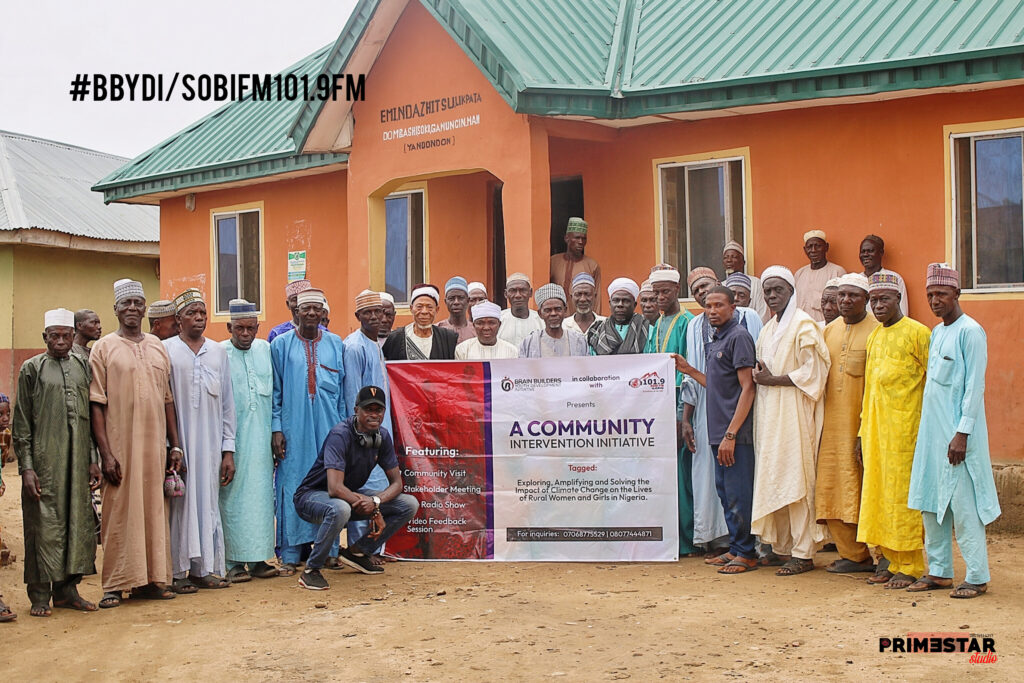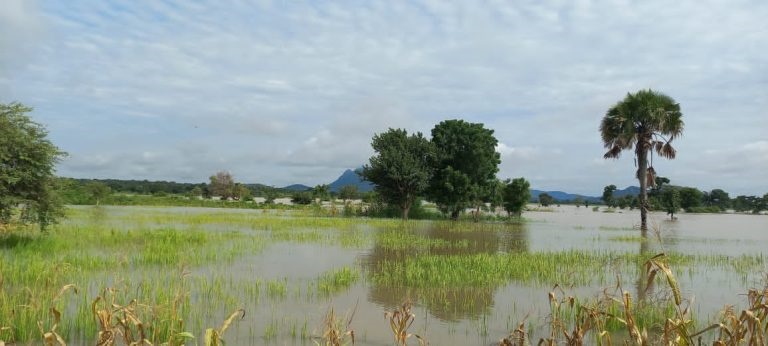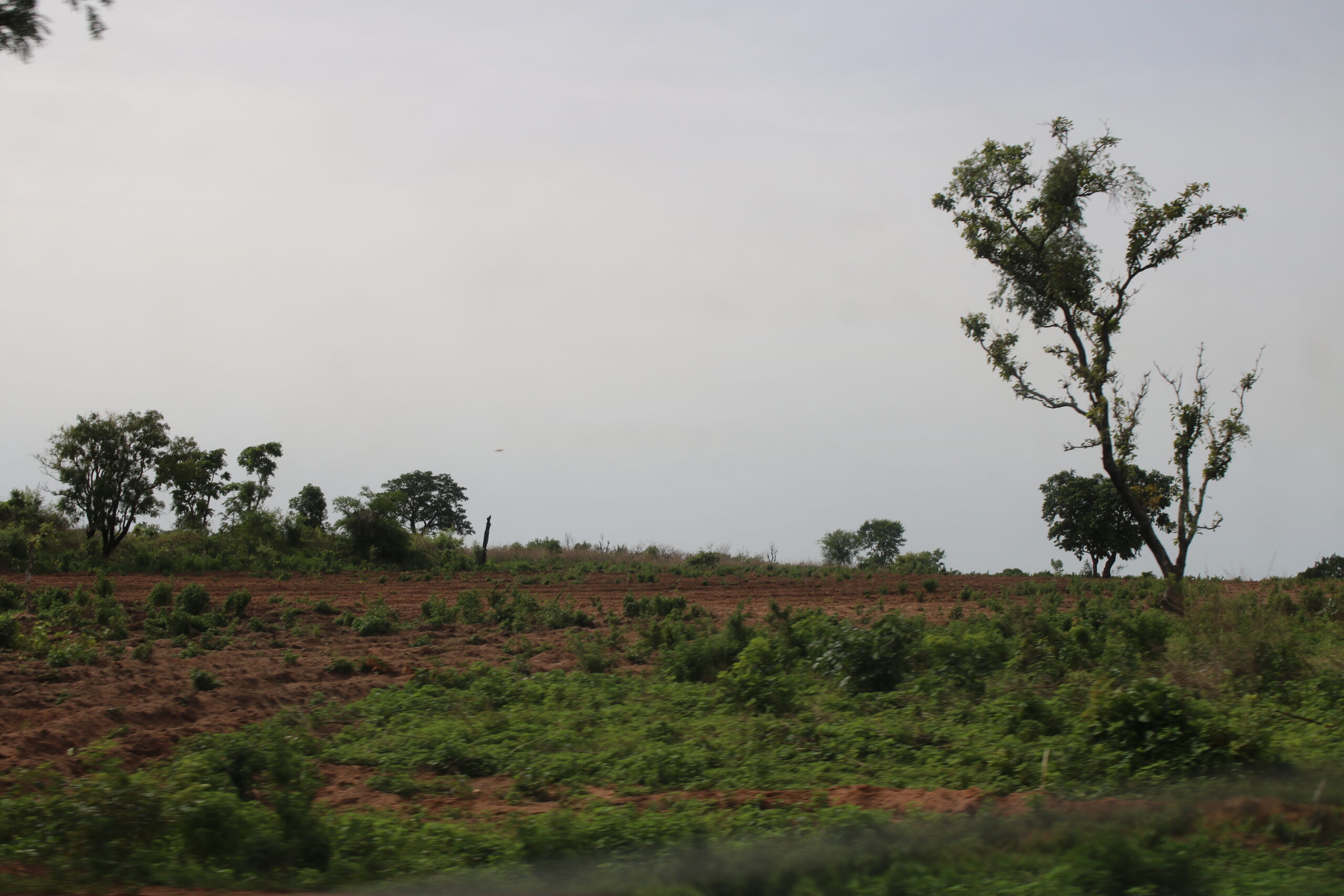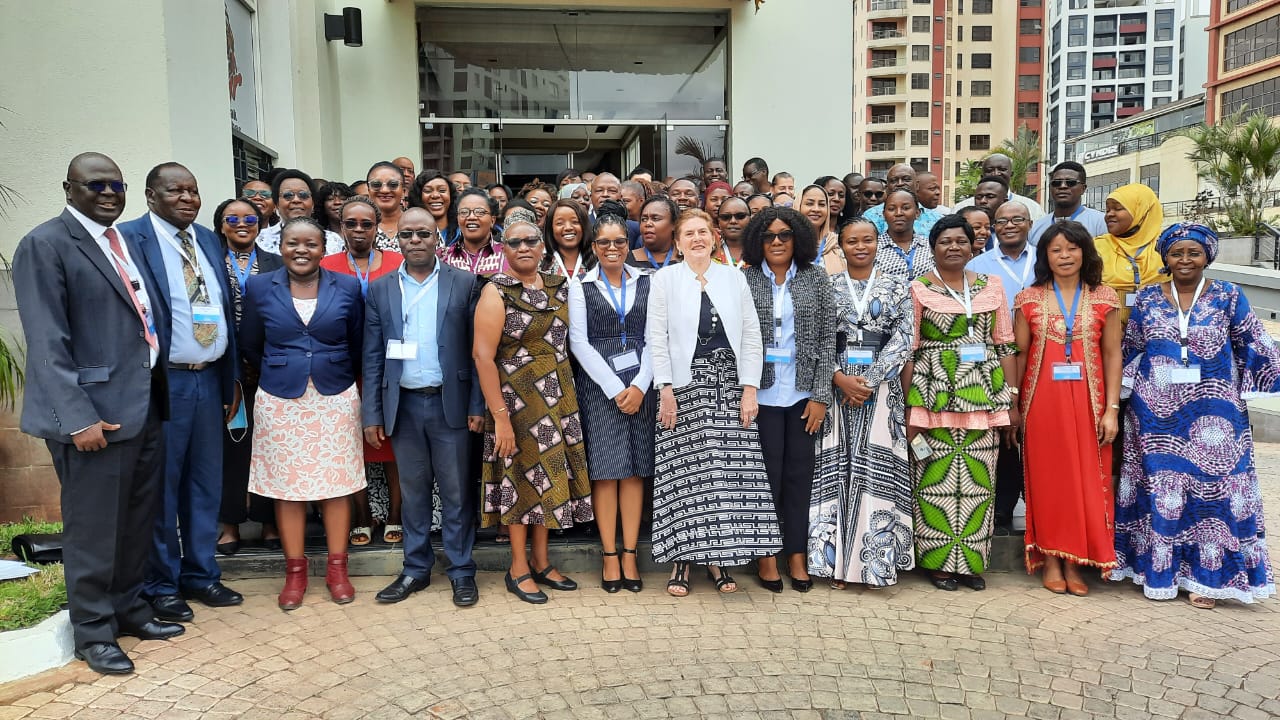Farmers in Likpata, a riverine community in Edu local government area of Kwara State, North Central Nigeria, are facing the challenges of climate change head-on by adapting their farming practices to the dry season.
With massive rainfall resulting in the perennial overflow of river Niger, farmers in the community devised innovative ways to cultivate crops and sustain their livelihoods.
The traditional farming season in Likpata runs from May to September, with farmers relying on the rainy season to grow their crops.
However, with the changing climate, the rains have become a curse rather than a blessing, leading to perennial floodings, which always leave farmers with reduced yields and massive loss of income.
To address this challenge, the community turned to dry-season farming, which involves cultivating crops during the dry months using irrigation techniques.
With the help of local NGOs and government agencies, farmers have been educated on the benefits of dry-season farming and trained on how to implement new techniques.

“The dry season farming has been a lifesaver for us,” said Alhaji Jubrin Mohammed, a farmer and community head of Likpata.
According to him, “Rice farms and animals are lost and half of the community is always submerged yearly.
“We can now grow crops when the rain is less and the volume of water in the river Niger is reduced, and sell them at a higher price during the off-season when there is less competition.”

One of the techniques being used is drip irrigation, a system of delivering water directly to the roots of plants through a network of pipes and emitters. This method is more efficient than traditional flood irrigation, which can waste water and lead to soil erosion.
Another technique used is the cultivation of drought-resistant crops such as sorghum, millet, and cowpea.
These crops can withstand dry conditions and require less water than traditional crops like maize and rice.
The government of Kwara State has also provided support to the community by providing enhanced seedlings and fertilizers. This has enabled farmers to expand their crop production and increase their income.
“The government and the Emir of Lafiagi have been very supportive of our efforts to adapt to climate change,” said Mohammed Jiya, another farmer in the community.
“We now have access to food and extra to sell in the market, which has made a huge difference to our livelihoods.”
We Will Make Kwara Food Secure – Governor AbdulRazaq
The Kwara State Government says it is building a food-secure state, where farmers will be self-reliant, empowered, and prosperous.
The state Governor, AbdulRahman AbdulRazaq expressed this at the official flag-off ceremony of Agricultural empowerment and inputs distribution at Kwara State Government House, Ilorin in March 2023, where over 4,000 farmers across the 16 local government areas of the state were empowered with free agricultural inputs and irrigation equipment to enable them to engage in an all-year-round-farming with a view to boosting food production.

The Governor, who was represented by his Deputy, Mr. Kayode Alabi, said the Government is embarking on an irrigation scheme to enable all-year farming.
He said 60 irrigation sites across the 16 Local Government areas have been developed and equipped for this purpose.
The aim, he said, is to change the narrative in the state Agriculture sector by empowering grassroots farmers with desired inputs.
“The agricultural sector is central to the policy of our government which is why we are mounting direct efforts in revitalizing the sector by enabling the farmers to gain self-reliance and economic empowerment,” the Governor explained.

He further stated that the state is investing in the livestock sub-sector of the Livestock Productivity and Resilience Support Project.
Rice Farmers Laud Government’s Dry Season Farming Scheme
Beneficiaries of the Kwara State government agricultural inputs and irrigation equipment empowerment scheme have praised Governor Abdulrahman AbdulRazaq for enhancing the capacity of indigenous farmers and improving food production in the state.
The farmers gave the commendation during an unscheduled inspection visit to the Salala cluster irrigation farm site in Afon, Asa local government area of the state.
Speaking on behalf of other farmers, the farm leader, Isiaka Yusuf, said the irrigation empowerment programme had changed the face of rice production, pointing out that the vision of the group was to establish a rice industrial estate in the state.
The state government had in March this year empowered over 4,000 farmers across the 16 local government areas of the state with free agricultural inputs and irrigation equipment to enable them to engage in an all-year-round-farming with a view to boosting food production.
In his remarks, the immediate past state commissioner for agriculture and rural development, Gidado AbdulLateef Alakawa, assured the farmers of the state government’s continued support towards achieving food sufficiency in the state.
Alakawa also appreciated the farmers for boosting the present administration’s policy thrust on an all-year-round farming initiative.
The commissioner disclosed that the state government’s dry season farming programme is to encourage both farmers and youths to see farming as a business and the only sector that is ready to employ the most unemployable individuals in the country and also to ensure and sustain food security in the State.
Alakawa added that the present administration under the leadership of Governor AbdulRahman AbdulRazaq had deliberately put in place an actionable plan to engage youths through farming activities in order to reduce the level of youth restiveness in the country and ensure that farming becomes a lucrative and profitable enterprise in the state.
The commissioner highlighted some of the state government’s agricultural programmes, which are in partnership with national and international relevant agencies.
He added that these programmes were geared towards achieving food security and sustainable agricultural practices such as the establishment of farm estates in Agbeyangi and Adanla, Ilorin East and Ifelodun Local Government Areas, and the state government participation in Special Agro-Industrial Processing Zones (SAPZs), among others.
The shift to dry-season farming has also had wider benefits for the community, including increased food security and reduced migration to urban areas in search of employment.
With more farmers able to sustain their livelihoods, the community has become more self-sufficient and less reliant on external aid.
However, challenges remain, including the high cost of irrigation equipment and the need for more training and education on dry-season farming techniques.
There is also the challenge of motorable roads into the community, which makes it very difficult to transport yields to the market, which can undermine the gains made through dry season farming.
Nimet Encourages Dry Season Farming in Flood Prone Communities
The Nigerian Meteorological Agency, NiMet, has advised Nigerian farmers and other critical stakeholders in the agricultural sector to take full advantage of farming in the dry season as part of efforts to prevent a food crisis in 2023.
The Director General, of the agency Prof. Mansur Bako Matazu, made the call during a one-day workshop on climate information service on the food crisis, organised by the Human & Environmental Developmental Agenda, HEDA, recently in Abuja.
The event, themed: ‘Averting a National Food Crises Post 2022 Flooding’, was attended by permanent secretaries from the state Ministry of Agriculture, including General Managers, of the Agricultural Development Programme, ADP, across Nigeria.

Matazu, represented by the Executive Assistant to the DG of NiMET, James Adamu, also called for youth engagement as a means of boosting food production in the country.
According to him “Dry season farming seems to be more productive, and the risk associated with weather is less during the dry season. So, if people that have been affected are encouraged to go into dry season farming, you will find out that the effect on livelihood and food and nutrition insecurity in the country will be reduced.
“Also, if we get our youths and engage them in agriculture, different forms of agriculture, vices in terms of conflict and insurgency, I think we. will have some relief that people will be engaged and they will not have time to be recruited as miscreants in the society.”
Reiterating NiMet’s commitment towards providing seasonal climate prediction early in the year for early preparation, urged state governors to be more proactive in taking measures geared towards protecting lives and properties.
This recommendation came in response to the ongoing increase in food commodities that came as a result of the devastating floods that ravaged most states and washed away farms, including the destruction of lives and properties.
In a similar vein, the Executive Secretary, HEDA, Resource Center, Sulaimonn Arigbabu, while harping on the need for Nigerians to take advantage of the dry season farming, bemoaned slow reactions by stakeholders in the agricultural sector to the predictions of NiMet.
“Dry season farming in Nigeria is a way of averting the food crisis that is already upon us, perhaps abating it should be a better choice of word.
“Over time, when NiMet releases its seasonal climate prediction, the country has not been able to take full advantage of this prediction, especially for the Agric sector and the reason is not far-fetched. The next step of action should happen at the state level.
Once the prediction is made at the national level and importantly NiMet has the facility to zero in on each state, a matter of fact on local government to give them annual prediction, monthly, and even up to three days predictions about what the climate will be like what rain pattern will be or what heat pattern will be like and these are very instructive data for agriculture.
“Nigeria has not been able to take advantage of that because actions that are needed to take place at the state level or the local government level are not happening.
“So, we’re here with some permanent secretaries to brainstorm, to strategize on how we can have a better, a more efficient early seasonal climate prediction steps down for the state, dissemination of information to farmers because it’s important that farmers use the information to decide on what to plant, their planning window which comes from the crop weather calendar of NiMet and also the kind of varieties that they will plant,” he said.
Other agrarian communities prone to flooding in Nigeria can take a cue from the success of Likpata which remains committed to adapting to climate change and building a sustainable future for themselves, their families, and the country as a whole.
With the support of government, NGOs, and other stakeholders, they are demonstrating that it is possible to thrive in a changing climate and create a more resilient and prosperous future for all.
By Dare Akogun
This story is produced with support from Brain Builders Development Youth Initiative (a climate-focused non-profit in Nigeria) and Sobi 101.9 FM Ilorin, Kwara State, North Central Nigeria.





